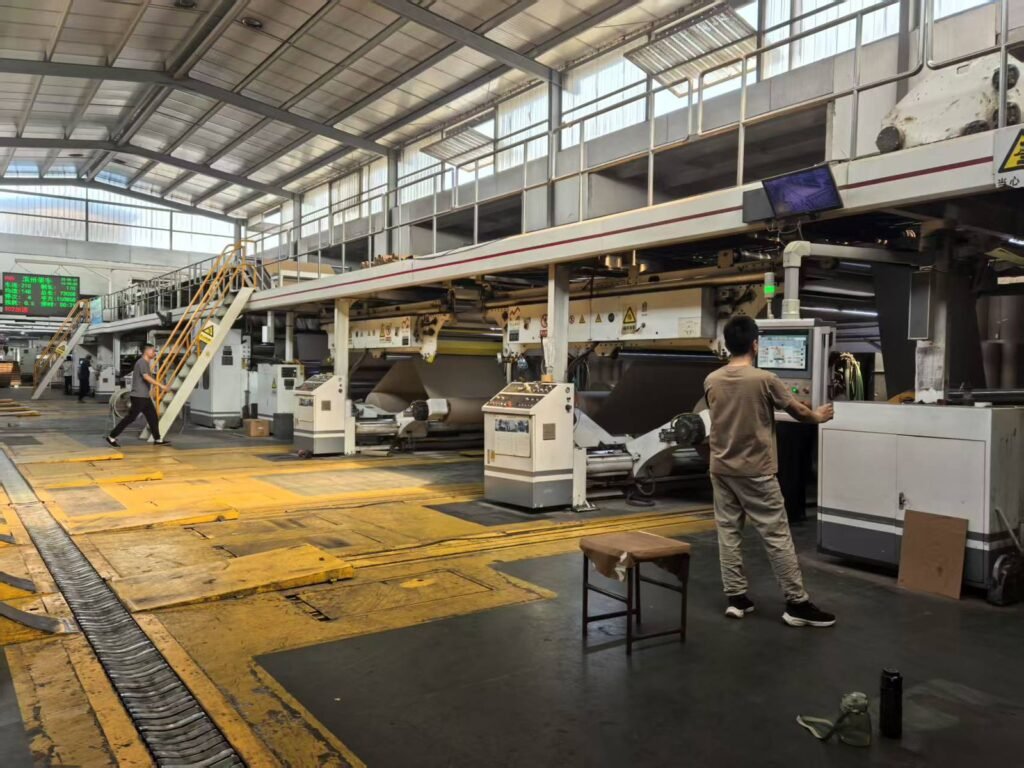The global packaging industry is expanding rapidly, with corrugated boxes being the backbone of e-commerce, logistics, and consumer goods distribution. For manufacturers in emerging markets, buying used corrugation machines can be a smart way to scale operations without the heavy capital investment required for brand-new equipment.
But exporting and importing used machinery isn’t as straightforward as it looks. If you’re an international buyer considering used corrugation machines, here’s what you should know before signing the purchase order.
1. Understand the Types of Corrugation Machines
Corrugation machines vary widely in scale, automation, and capability. Before buying, know which type fits your business model:
- Single Facer Machines – Produce single-faced corrugated sheets; ideal for smaller operations.
- Double Facer/Automatic Plants – Large-scale machines capable of high-speed, continuous production.
- Board Cutters, Slotters, and Folder Gluers – Auxiliary equipment needed for a complete production line.
Used machines often come as part of a package, but sometimes you’ll only get standalone units. Clarify exactly what is being sold.
2. Machine Age vs. Efficiency
Unlike brand-new machinery, used corrugation machines vary in age, wear, and technology level. A 10–15 year old machine may still function but could lag in:
- Energy efficiency
- Automation features (digital controls, auto-splicers, quick changeovers)
- Output consistency
International buyers should balance cost savings with long-term operational costs. A cheaper machine with higher power consumption and downtime might cost more in the long run.
3. Compliance and Export Regulations
Used industrial machinery often faces stricter customs scrutiny compared to new equipment. Points to consider:
- Export Permits – Some countries require sellers to obtain clearance before shipping used machines.
- Import Regulations – Certain nations restrict or impose heavy duties on old machinery to protect domestic industries.
- Electrical and Safety Standards – Machines may need modifications (e.g., voltage conversion, guarding systems) to comply with local laws.
Always work with a freight forwarder familiar with used industrial equipment exports.
4. Inspection and Refurbishment
The biggest risk for international buyers is purchasing sight-unseen equipment. To avoid surprises:
- Request Detailed Reports – Include service history, running hours, and maintenance logs.
- Third-Party Inspection – Hire an independent surveyor to assess condition before shipment.
- Refurbishment Options – Many sellers offer partial or full refurbishment (bearings, rolls, motors, PLCs) before export. This adds cost but ensures reliability.
5. Total Cost of Ownership (TCO)
Don’t just look at the sticker price. Factor in:
- Shipping & handling costs (oversized machinery can be expensive to move).
- Customs duties and VAT/GST at the destination.
- Installation, training, and calibration costs.
- Spare parts availability – some brands/models are discontinued, making parts sourcing a challenge.
Sometimes, paying a bit more for a newer used machine from a globally recognized brand (like BHS, Fosber, or Mitsubishi) saves money in the long run.
6. Negotiation and Documentation
When buying across borders, documentation is critical:
- Commercial Invoice & Packing List – Must clearly mention machine details (make, model, year).
- Bill of Lading – Ensures ownership transfer.
- Certificate of Origin – Required for customs duty benefits under trade agreements.
- Letter of Credit (LC) – Protects both buyer and seller in high-value transactions.
Always use legally vetted contracts to avoid disputes.
7. Choosing the Right Supplier
Reputation matters. Look for:
- Established exporters with verifiable trade history.
- References from past international buyers.
- Transparency on machine condition and after-sales support.
If possible, visit the seller’s site or send a local agent. Many fraudulent listings exist in the used machinery market.
Final Thoughts
Buying a used corrugation machine for export can be a cost-effective entry point into the packaging industry, but only if done carefully. International buyers should:
- Do thorough due diligence.
- Understand local import rules.
- Consider long-term operational costs, not just purchase price.
In many cases, a well-refurbished used machine from a reliable exporter can provide excellent value. But rushing into a deal without inspection, compliance checks, or proper documentation can turn into a costly mistake.

